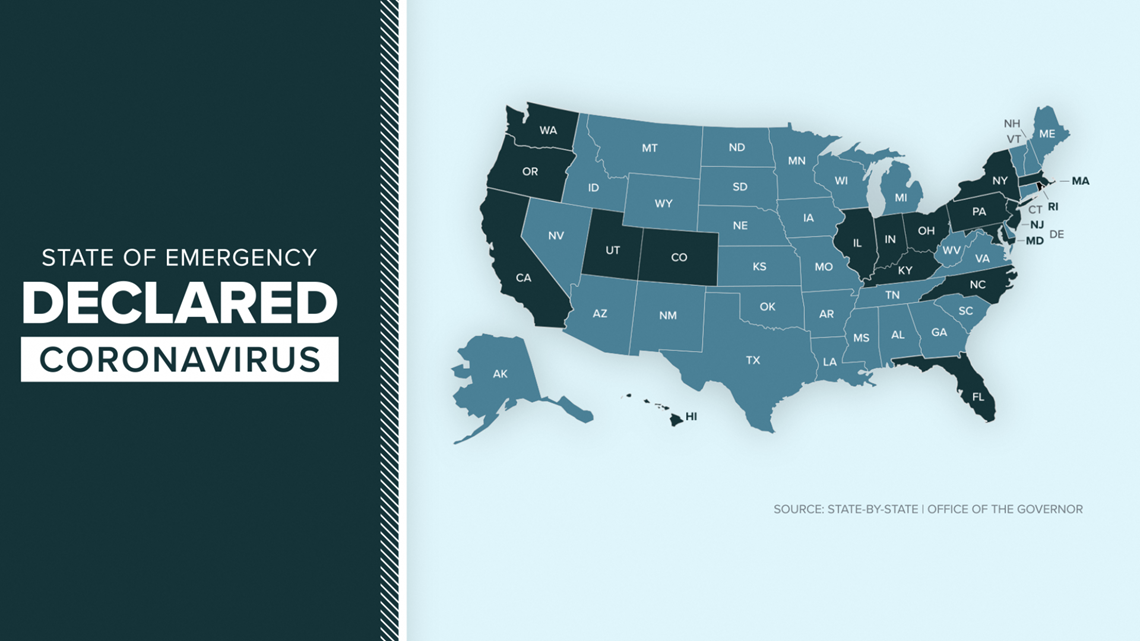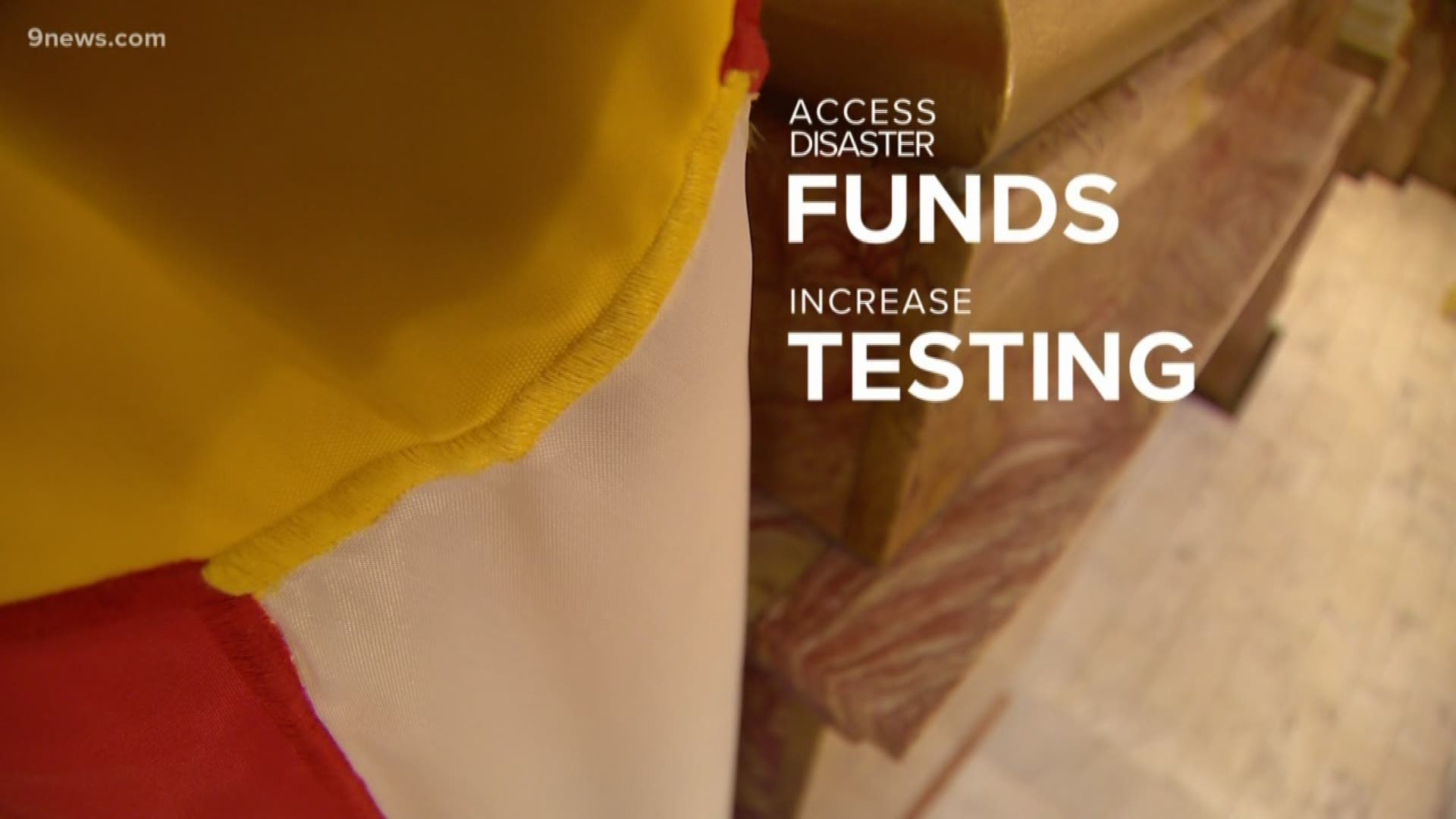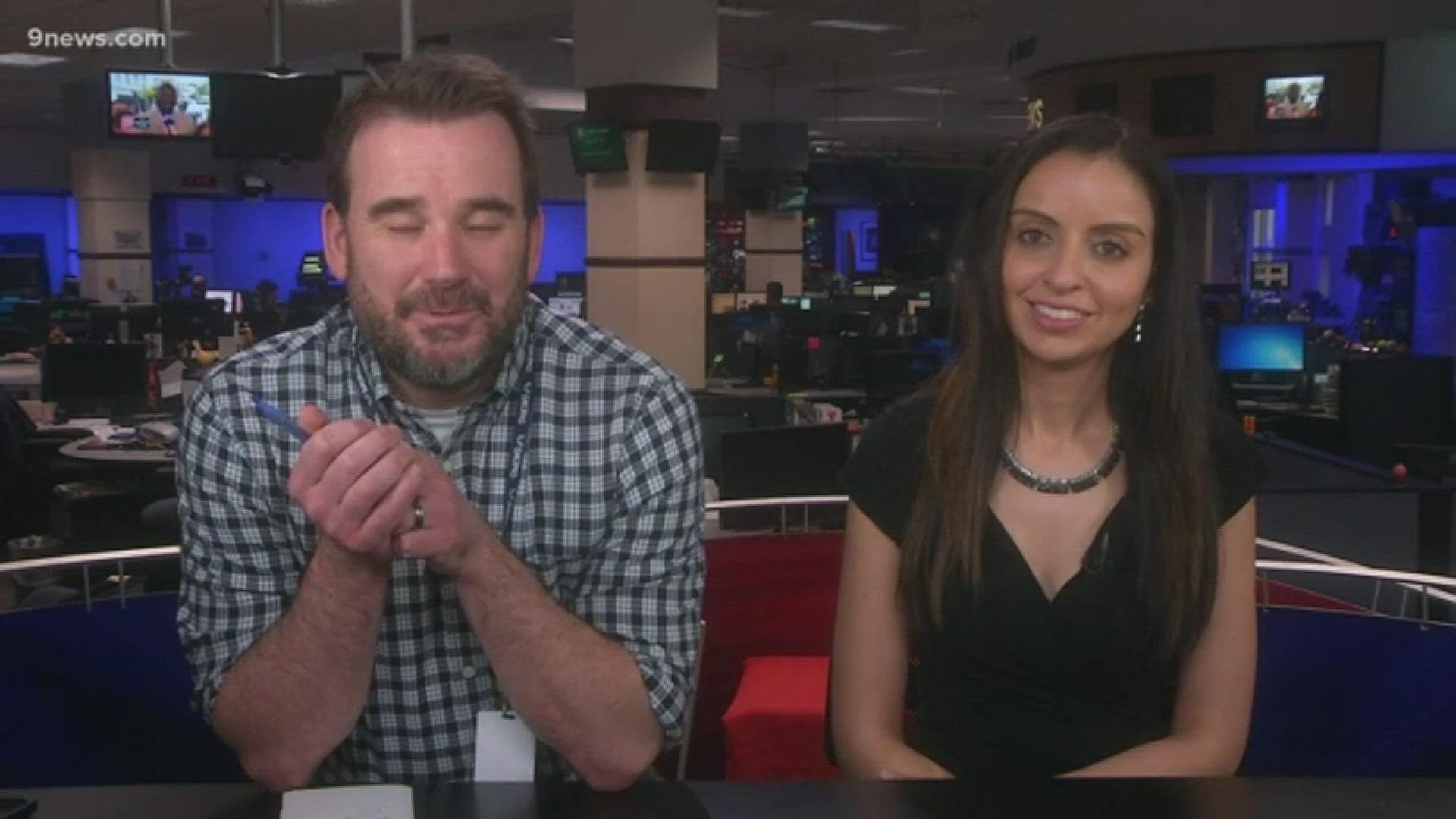DENVER — Colorado Gov. Jared Polis (D) declared a state of emergency Tuesday in response to recent cases of COVID-19 in the state.
Mayor Michael Hancock declared a state of emergency on Thursday for the City and County of Denver.
This new strain of coronavirus began popping up in the United States in February. The first case was announced in Colorado on March 5, and multiple other presumptive positive cases have been confirmed across the state.
NUMBERS: Colorado COVID-19 cases
A state of emergency status essentially frees up funding for the governor's office to respond to a disaster that has occurred or is imminent.
"We're going to get through this together, but the actions that we take in the few days and weeks will really determine the trajectory of [the novel] coronavirus in Colorado."
Polis said he made the declaration to protect the most vulnerable populations and better contain the outbreak and spread of COVID-19. That includes people over the age of 60 and those who are immune-compromised.
Starting Wednesday, Polis said the Colorado Department of Public Health and Environment (CDPHE) will open up a drive-up lab for testing at their facility in Lowry to test anyone who has a note from their doctor stating they need COVID-19 testing.
"This is important: You still need a doctor's order to get tested at our drive-up lab at 8100 E. Lowry Blvd. in Denver," Polis said.
The facility will be open 10 a.m. to 2 p.m. from Wednesday to Friday in this first week. Next week's schedule is not yet available, but it will be posted on the CDPHE website.
Polis said expanding Colorado's ability to test more people is "a very good thing," and that it's a crucial tool in the state's efforts in slowing the spread of the virus.
Diagnostics firm LabCorp is now performing coronavirus tests, complementing state and federal testing. Currently, the state has about 900 test kits, with an additional 1,500 expected to arrive in the state in the coming days.
"The more people we test and the sooner we do it, the better chance we have at successful containment," Polis said.
Polis also said he directed the Colorado Department of Labor and Employment to engage in emergency rule-making to ensure that workers in food handling, hospitality, childcare, healthcare and education, get paid sick leave to miss work if they exhibit flu-like symptoms and have to miss work.
WATCH: Colorado will require paid sick leave for some employees amid COVID-19 outbreak
"This step not only stops the spread of the virus but also inspires confidence for both tourists and Coloradans that we are minimizing risk in our state, especially in professions that could potentially be significant vectors for contagion."
Polis also asked the Department of Revenue to make temporary changes to allow those 65 and older to renew their driver's licenses online instead of having to go to the Department of Motor Vehicles (DMV).
Right now, adults over that age are required to renew in person. In making the temporary change, Polis noted that one of the people who had tested positive in Colorado had visited a DMV location in Castle Rock.
On Monday, Polis ordered health insurers regulated by the state to waive fees associated with COVID-19 testing. Under the policy, Polis said there are to be no copays, deductibles or coinsurance costs to patients related to the novel coronavirus.
If a person is exhibiting symptoms, the person should go to a medical provider, like a clinic or hospital, ONLY AFTER calling the provider. If appropriate, the provider will give them instructions on where to go for care and testing.
COVID-19 is a virus that first appeared in Wuhan, China in late 2019. Symptoms of COVID-19 can include fever, cough and breathing trouble. Most develop only mild symptoms. But some people, usually those with other medical complications, develop more severe symptoms, including pneumonia, which can be fatal.
In rooms inside the state capitol, new measures are being discussed for what comes next with the state legislature. The emergency declaration could allow lawmakers to put a pause on the legislative session and take a recess instead of closing off the legislature from the public.
"This is a public building and the public should always have access," said Senate Minority Leader Chris Holbert.
Colorado legislators say they want to get advice from state health officials before making any decisions on whether to go into recess.
If they do, the legislative session would be pushed back deeper into the summer.
According to the Colorado statute that dictates emergency declarations, here's what Polis' order means:
- A disaster declaration only lasts for 30 days at a time, and must be renewed by the governor.
- The state legislature can vote to cancel a disaster declaration at any time.
- The governor can suspend or limit the sale, dispensing or transportation of alcoholic beverages, firearms, explosives or combustibles.
- The governor is able to order the state militia into emergency duty.
- The governor can issue executive orders pertaining to the disaster. This could include making schools provide lunches for students even if they're closed due to COVID-19, or temporarily closing large venues like the Pepsi Center.


SUGGESTED VIDEOS: COVID-19 Coronavirus



